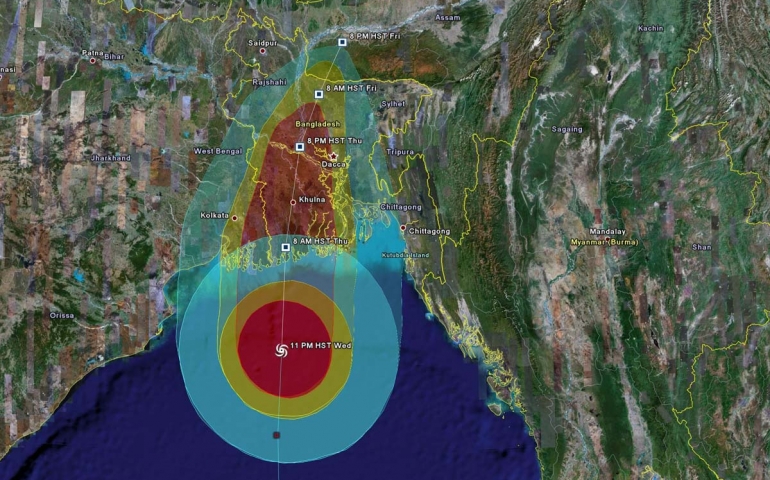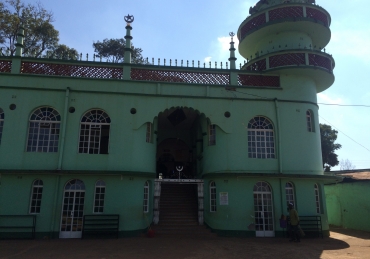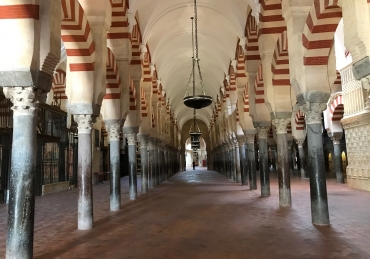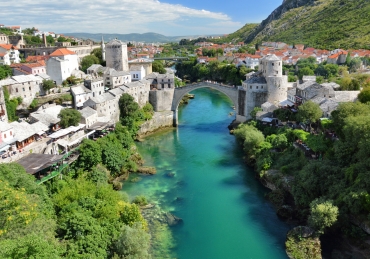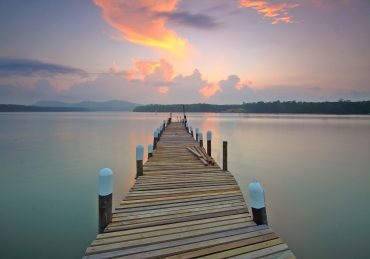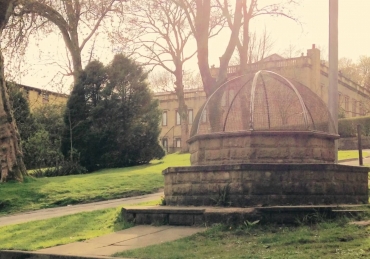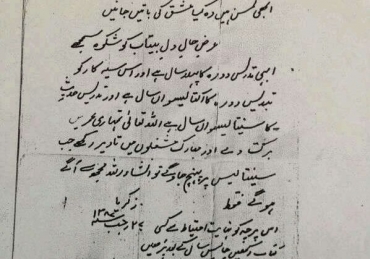Cyclone Sidr Eyewitness Account
The following is an eyewitness account following Cyclone Sidr in 2007 based on the visit by three scholars from UK based NGOs Ummah Welfare Trust and Muslim Welfare Institute.
Day 1 – Sunday 14 Dhu al-Hijjah 1428 / 23 Dec 2007
Disaster Beyond Comprehension
The destruction and misery caused by Cyclone Sidr in South Bangladesh is beyond human comprehension. The tidal wave gushed through 200km of mainland Bangladesh resulting in the death of thousands and millions have become homeless. Mosques have disappeared and trees remain uprooted. One can only understand the scale of the disaster by visiting the region.
The first village we visited to distribute aid was Rajapur, located 50km from the Bay of West Bengal. At first sight, I could not help but shed a few tears. They are such innocent humble people whom the Almighty has tested to elevate their status and rank. I tried my best to force a smile in accordance with Prophetic teachings as smiling is a form of charity and good deed (Sahih Muslim, 2626; Sunan al-Tirmidhi, 1970). We came across a young lady Fatima, who was walking with her child when the tidal wave forced them to a tree and the child’s hands were stuck. She started to scream, “Cut my hand and let me free” but to her mother’s despair the wave swept the child away with the tree until the mother could no longer hear the cries. How must Fatima feel when she remembers these cries? However, Fatima is not the only one.
Jamaluddin was walking through his village with his small daughter when the gushing waves separate the two. The daughter cries out, “Abba, Abba please save me” but Abba (father) is powerless. He cannot save the daughter. When Jamaluddin is aided with emergency relief he sheds tears accepting the fate of the Almighty but crying, “My relief is my daughter”. In a neighbouring village of Tafalbari, Sadiq lost his seven year old son and four year old daughter. There are thousands like Jamaluddin and Sadiq who are severely traumatised but remain helpless and homeless awaiting consolation.
The story is endless, and the tears are insufficient. The Bangladeshi people face a great challenge of rebuilding their lives, homes and economy and we in the West can play a pivotal role in alleviating their suffering. Ummah Welfare Trust in conjunction with Muslim Welfare Institute has launched a half million pound emergency appeal for the people affected by the Cyclone. A team comprising of myself, Shaykh Shafiqurrahman of Muslim Welfare Institute, and Shaykh Elyas Desai of Preston have come to Bangladesh to overlook the emergency distribution during the Eid al-Adha occasion. Whilst here, we have also inaugurated a water filter system and as with all disasters, our next challenge is to initiate long term projects. They include rebuilding homes, mosques, providing fishing nets for self reliance, provision of clean water and other projects.
Yusuf Shabbir, South Bangladesh
Day 2 – Monday 15 Dhu al-Hijjah / 24 Dec 2007
It Gets Worse
The situation is much worse. The closer we get to the ocean, the greater the damage. We drive hundreds of kilometres through the jungles and rivers to deliver aid to Mirzaganj village in Gorkhali district. We have a bumpy ride as the roads are severely damaged. Wherever our eyes fall, trees are crippled and there is total destruction. The village is only five kilometres away from the ocean and words simply cannot describe the catastrophe. The Masjid has vanished, and all but one home have been swept away.
We meet some of the local residents and their narratives shock us all. Seventy year old Abdullatif Shiddar and his wife live on high ground and saw the waves approaching. They called out to the surrounding people as they decided they would either die together or live together. He says, “The water waves were very fast and there was a light and brightness in the sky”, possibly referring to lightening. Reports suggest the speed of the waves exceeded 260 km/h and the water level rose by 28 feet in this village.
Sixty year old Abdul Mannan, his fifty year old wife Salihah and their twelve year old grandson were unaware of the cyclone until the tidal wave reached their home. There was virtually no chance of them surviving but Allah Almighty had decided otherwise. The water forced them up and they clung to a tree from 9pm onwards for a few hours until the water started to retreat back to the ocean.
Abdul Mannan’s livelihood is destroyed. His fishery items and 25,000 Taka worth vegetation has been destroyed. He is particularly worried as his crops will take another year to yield. Both the Ummah Welfare Trust in conjunction with Muslim Welfare Institute are planning to provide long term income generating projects such as fishing nets and animals along with various water, sanitation, and house reconstruction projects. There is also a project to amalgamate the shelter project and the mosque reconstruction project into one by constructing a mosque on high pillars. Thus, the mosque would play a dual role.
Residents of the village shared with us that bodies of two young martyred brothers were found one mile away from the village after searching for eighteen days. Nearby the village, we saw graves of the deceased martyrs and I could not digest the image and scene of burying thirty five corpses in one day. The visit to this village was an eye opener and demonstrated how extreme poverty coexists with patience. Indeed, this cyclone is a reminder of the majesty of Allah Almighty and there are many lessons in His signs for those who ponder.
Yusuf Shabbir, South Bangladesh
Day 3 – Tuesday 16 Dhu al-Hijjah / 25 December 2007
Village Horror
After travelling five kilometres in a speed boat across river Bishkal from Boroytala, we arrive at the isolated village South Tetul Baria. The area is in a total mess and the village has been ransacked. The colour of the trees has turned pale and their barks have been stripped off. Four of the five mosques were destroyed and all the water ponds have been infected. More than three hundred homes were destroyed and up to thirty people became martyrs. Until our arrival, no aid had yet reached the village, nor were they pre-warned about the cyclone.
The village has no flood shelter and many took refuge by hanging on to tree branches. Nargis, a local woman, described how the water sped through the village, gushing in and out, up to twenty feet high and destroying everything. She hung unto her child and took refuge in a tree. Not everyone was able to do the same. She saw a woman trying desperately to cling unto her child but the force of the waves overtook her child and swept them away. Will the mother ever forget this scene and rejoice again?
The story of Helinah Begum brought tears to our eyes and rattled our hearts. Most of all, her patience and gratitude of Allah Almighty was a positive sign of unity, cooperation and pain sharing within the village. Everyone had lost their loved ones or had been affected in one way or another. Helinah describes the moment when the tidal wave forced the roof of her shed-house unto her eight year old child who died in front of her eyes. Subsequently, her forehead was injured and she showed us the injury sustained by her hand when trying to uphold the roof. She tried her utmost best to protect and save her child but was unable to do so. Will she ever forget this scene and rejoice again?
Everyone has a story to tell. Some describe the number of people dead in their family or the velocity and ferocity of the wave. Others show us the location of the mass graves whilst some shed tears for being unable to locate corpses. There are those who tried to take refuge in boats and ships but were thrown overboard and drowned.
The village is ruined. There remain broken homes, infected lakes, uprooted trees, mass graves, razed mosques, wrecked boats, traumatized people and broken hearts. The village was silent in horror as people continued to remember the tragedy. Ummah Welfare Trust in conjunction with Muslim Welfare Institute intends to initiate long term reconstruction, sanitation, forestation, and income generating projects to relieve the suffering of these innocent humble kind people.
This is what we saw a month after the disaster. We cannot imagine how the scene would have been on the day itself. Colleagues Shaykh Ilyas and Shaykh Shafiqurrahman discuss how the Ummah is reminded again and again of the power of Allah Almighty and it is for every individual to reflect upon his life and rectify it accordingly.
Yusuf Shabbir, South Bangladesh

